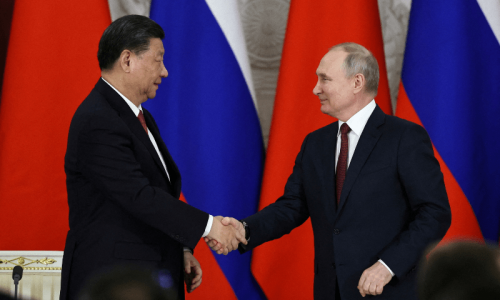DUBAI, UAE: Envoys in Dubai signed a new UN telecommunications treaty on Friday that a US-led delegation says, endorses greater government control of the internet. The US and more than 20 other countries refused to ratify the accord by the 193-nation International Telecommunications Union. Here is a look at internet restrictions and availability at selected countries and regions around the world:
North Korea: Internet use is extremely restricted with many of North Korea’s 24 million people unable to get online. Some North Koreans can access an internal intranet that connects to state media. Members of the elite, resident foreigners and visitors in certain hotels are allowed full access to the internet.
Iran: Most Western social media sites such as Facebook and Twitter are blocked in Iran, as well as political opposition and sexually explicit websites. But proxy server sites and other methods are widely used to get around the official restrictions.
Iran has announced plans to create its own domestic internet with fully monitored content, but international experts question whether such a complete break from the worldwide net is possible. Earlier this week, Iran accounted, it had developed its own YouTube-style video sharing site.
China: There are more than 500 million Chinese online but they contend with an extensive internet filtering and censorship system popularly known as the “Great Fire Wall”, which censors police blogs; and domestic social media for content, deemed pornographic or politically subversive. Many foreign websites, including YouTube, Facebook, Twitter and the New York Times are blocked. Searches for controversial topics such as corruption scandals or jailed Nobel Peace Prize winner Liu Xiaobo return error messages. Users evade controls using proxy servers.
Cuba: Tight control, slow connections and high costs mean only around five per cent of Cubans have access to the global internet, with another 23 per cent relying instead on a government intranet with very limited content. Web access is mainly via public facilities where people must first register with identification.
Gulf Arab States: Political sites deemed threats to the state are often blocked. Authorities across the Gulf have stepped up arrests of bloggers and others for posts considered offensive to rulers or advocating political reforms.
Central Asia: Internet censorship is prevalent across former Soviet Central Asian republics, but the strongest restrictions have been recorded in Iran’s authoritarian neighbours to the north, Turkmenistan and Uzbekistan. Controls are strictest in Turkmenistan, where social networking sites Facebook and Twitter are out-of-bounds, as is video-sharing site YouTube and numerous news websites.
Uzbekistan has taken a less extreme approach, but sites critical of the government are blocked as a matter of course.
Tajikistan, which is like those countries also ruled by an unchallenged strong-man ruler, has twice this year barred access to Facebook after web-surfers used the site to post material critical of government officials.
Eritrea: The government restricts access to the internet and closely monitors online communications. The US State Department’s latest human rights report said the Eritrean government monitored email without obtaining warrants as required by law, and that all internet service users were required to use one of the three service providers owned directly by the government or controlled through high-ranking members of the country’s sole party. But the vast majority people do not have internet access.—AP











































Dear visitor, the comments section is undergoing an overhaul and will return soon.